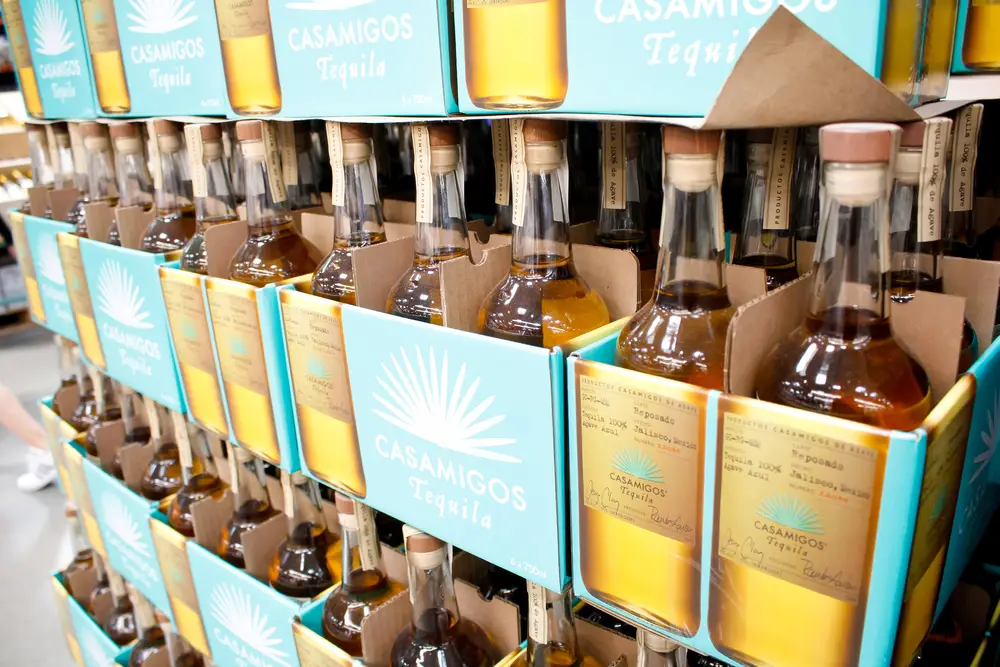For years, tequila lovers have shelled out premium prices for bottles of Casamigos and Don Julio, believing they were sipping on the purest form of the spirit: 100% Blue Weber Agave. But a new class action lawsuit is calling that belief into question and shaking up the luxury tequila market in the process.
The lawsuit, filed in New York federal court, accuses Diageo North America Inc.—the global beverage giant behind both brands—of misleading consumers by falsely advertising their tequila as “100% agave,” despite allegedly blending in non-agave alcohols like cane spirits. According to the plaintiffs, the labeling and marketing are deceptive, and customers were tricked into paying more than the products were worth.
Let’s dive into the controversy, what the lawsuit alleges, and what it could mean for your next top-shelf tequila purchase.
What’s the Casamigos & Don Julio Tequila Lawsuit About?
The central claim is simple but serious: Plaintiffs say Diageo marketed Casamigos and Don Julio tequilas as being made entirely from 100% Blue Weber Agave, when in reality, they may contain other non-agave additives that disqualify them from that label.
Casamigos bottles are labeled “Tequila 100% Agave Azul,” while Don Julio says “100% de Agave.” Plaintiffs argue these statements misrepresent the true nature of the spirits, which allegedly include cheaper alcohols such as cane spirits, making them “mixto” tequilas, and not the pure product consumers believed they were buying.
The lawsuit further alleges that Diageo’s misleading claims violate consumer protection laws, especially since buyers paid a premium under the assumption they were getting an authentic, high-quality tequila.
Diageo Under Fire
Diageo is no stranger to luxury branding, and it acquired Casamigos in 2017 in a deal reportedly worth up to $1 billion. The brand, co-founded by actor George Clooney, quickly became one of the fastest-growing tequila labels in the U.S. Don Julio, a longstanding name for premium tequila, is also owned by Diageo.
The plaintiffs allege that Diageo used the cachet of these brands and the “100% agave” label to convince consumers they were getting top-tier spirits. But according to the lawsuit, they were instead served a product that didn’t meet the expectations promised on the label.
So far, Diageo has not issued a public comment regarding the claims.

What Compensation Is Being Sought?
The plaintiffs are seeking monetary damages to reimburse consumers who paid premium prices for what they believed was 100% agave tequila. The lawsuit also asks the court to award legal fees and additional compensation for Diageo’s alleged unjust enrichment.
No specific dollar amounts have been confirmed yet. The final payout will depend on the court’s ruling and how many eligible claimants participate in any future settlement.
A Wake-Up Call for the Spirits Industry
This lawsuit could have ripple effects far beyond Casamigos and Don Julio.
The “100% agave” label has long been a mark of purity and authenticity in the tequila world. If a federal court finds that Diageo misrepresented its products, it may lead to tighter scrutiny of labeling practices across the entire spirits industry.
Bar owners, retailers, and consumers alike could face tough questions about what they’re really selling, or sipping, when it comes to premium liquors.
What Happens Next?
The lawsuit is currently awaiting class certification in New York federal court. If the court approves it, the case could proceed to trial or reach a settlement agreement.
Whether you’re a tequila connoisseur or just someone who enjoys a premium margarita now and then, this case may leave you questioning what’s really in your glass. Stay tuned as the court decides whether Diageo’s tequila marketing passes the truth-in-labelling test—or leaves a bitter aftertaste.
Frequently Asked Questions (FAQ)
The lawsuit alleges that Diageo falsely labeled Casamigos and Don Julio tequilas as “100% agave,” while allegedly blending them with non-agave alcohols like cane spirits, misleading consumers, and violating labeling laws.
Tequila made from 100% Blue Weber Agave is considered higher quality, smoother, and more authentic. Mixto tequila, by contrast, includes up to 49% non-agave sugars and is generally cheaper to produce.
No. While Clooney co-founded Casamigos, the lawsuit targets Diageo North America Inc., which owns the brand. There is no claim that Clooney himself misled consumers.
That’s not yet clear. If the class is certified and a settlement is reached, the claims process will determine what documentation, if any, is needed to qualify for compensation.




Add Comment